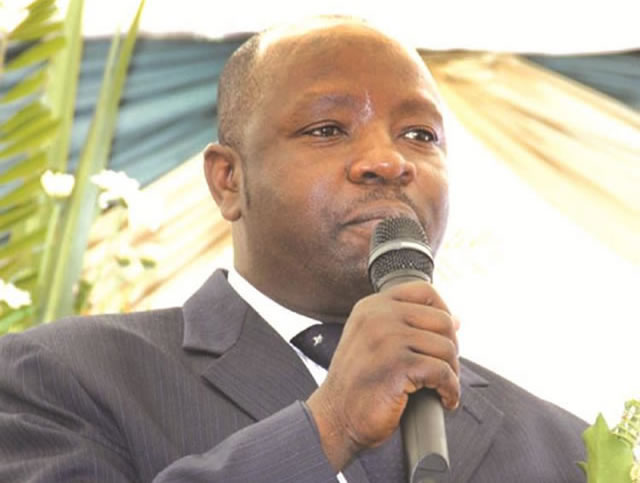When injured in the line of duty


Police officers and journalists were severely beaten by rowdy church members of an apostolic sect led by Madzibaba Ishmael in Budiriro
John Manzongo At The Workplace
A few weeks ago I wrote about workplace hazards.
Some readers played down my observations as far-fetched, but only last Friday, the problem reared its ugly head in Budiriro.
This time journalists and police officers found themselves at the receiving end. Last week, I had pointed out that the latter must work with journalists and protect them from harassment instead of harassing them.
As fate would have it, this time police got a taste, albeit in concentration, of what journalists occasionally endure in the line of duty.
Police officers and journalists were severely beaten by rowdy church members of an apostolic sect led by Madzibaba Ishmael.
If I may ask, does the sect believe in the God whom I also believe in?
According to God’s word, churches should be places of peace and communion. There should be no reason whatsoever for believers to assault anyone, in spite of the enormity of the disagreement.
The sect members were apparently all-out to kill the police officers and the journalists. The officers and journalists were simply doing their duty and why punish them that way?
I hope the law will take its full course against the perpetrators.
The issue I am going to discuss today is what type of compensation these workers (journalists and policemen), who were injured while on official duty are entitled to.
Relax Mafurutu, a cameraperson with ZBC TV, sustained severe injuries on both hands. His hands were fractured as he blocked the knobkerries that were beating him all over his body.
Camera persons or photojournalists are exposed to greater risk of assault during their duties because they carry visible tools of trade, while reporters can easily hide their notebooks and pretend to be just bystanders.
It was so clear to the church members that this was a journalist at work because he had his camera but still they went on to beat him.
The police also were not confrontational to warrant retaliation.
The injured journalists and police officers were taken to hospital. I hope their employers will chip in to ensure that they are receiving the best medical treatment possible.
Under the circumstances, the individuals’ medical aid might not be sufficient to cover the extra bills such as scans and other processes that are done to ascertain the degree of injury.
Employers should assist with medical expenses to make sure the workers feel that they are valuable to their organisations as they were injured in the line of duty.
I however, feel there is need to remind all concerned — workers and their employers — of what to do in the event of one incurring injuries while on tour of duty.
For workers, when you are injured, immediately report your injury. If you have been injured on the job, immediately notify your supervisor and he or she must report it up as soon as possible.
The next step is to immediately seek medical attention. The workers’ medical bills and prescriptions, as provided or prescribed by your medical care provider, must be paid in full.
There must be no co-payments for workers’ compensation related to medical treatment. For employers, Australian researchers found out that getting injured workers back into their jobs quickly is not only good for business; it has positive effects for workers too.
The longer a worker stays away from work the less likely they are to make a full return to their original job. When workers are away for an extended time, employers’ business may face disruption, reduced productivity and increased workers’ compensation insurance premiums. There is need for companies to set up injury management schemes which focus on early reporting, rehabilitation and return-to-work strategies to assist the injured worker make an early and safe return to work.
It doesn’t have to be complex. All employers must have an injury management system and it is simply a written description of the steps to be taken when a worker is injured on duty.
In small businesses, the owner often fulfils this role while in a medium-sized business, the employer may designate the role on a part or full-time basis.
Large businesses may need to appoint a number of injury management coordinators across many sites.
There is need for employers to show concern and care for the workers injured while on duty because failure to do so will send a negative message to all the employees.
Employees will feel that they are only needed when they are able-bodied and discarded once injured.
This feeling will cause workers to lose morale and motivation for work. They will just be doing it for the sake of fulfilling an obligation.
In the case of police officers, they may just observe crime taking place because if they intervene and get injured they will not be compensated or cared for.
The area in which the incident happened is so rocky, hard and rugged, besides the beatings from the knobkerries, the victims also bumped their heads and bodies on rocks and thorns, thereby making it a necessity for proper and specialised medical checks to ascertain whether they suffered any internal injuries.
An individual worker’s medical aid cover might not be sufficient to do that. Besides the medical care and treatment, it would be great motivation to receive a visit from employers from the highest level just to show that they care and value your contribution to the organisation.










Comments